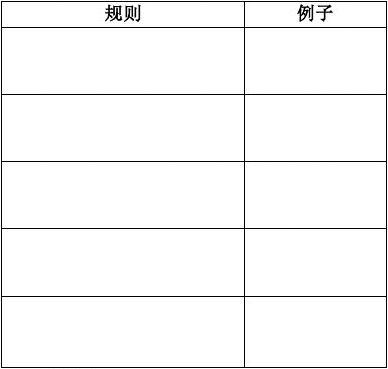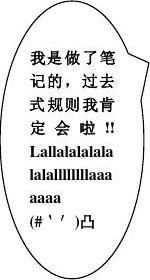一般过去时语法知识
一般过去时表示过去某个时间发生的动作或状态;过去习惯性、经常性的动作、行为;主语在过去时间段所具备的能力和性格。一般过去时句子最明显的现象就是常由表达过去时间的副词、副词短语或从句来界定。 “过去”的概念并不仅指如“yesterday, last week, ??”等,实际上“与现在对立的过去”,亦即“非现在....................的以前”,哪怕是“过了说话时间的几分钟之前”,只要所要表达的时间与说话时的“现在”形成对立,就必................................................须使用一般过去时来表达。例如: ............
He was here only a few minutes ago. I came home just now. 仅仅几分钟前他还在这里。 我刚回到家。
“this + 时间,today”等时间副词常用于修饰一般现在时,但是只要句子的本意是“与说话时的现在”对立,....................即使句子中有“this + today”等时间副词,也必须使用一般过去时。例如: ............时间,..........................
1 I got up very early this morning. He was late for school again today. 今天早晨我起床很早。 今天他又迟到了。
强化理解:
1. 一般过去时表示在过去某个特定时刻或时期所发生的事情,也可以表示过去习惯性、经常性的动作。一般过去时只说明过去的事情,不强调动作对现在的影响。 ..........................
I had a word with Julia this morning. 今天早晨,我跟朱丽亚说了几句话。
…… …… 余下全文




